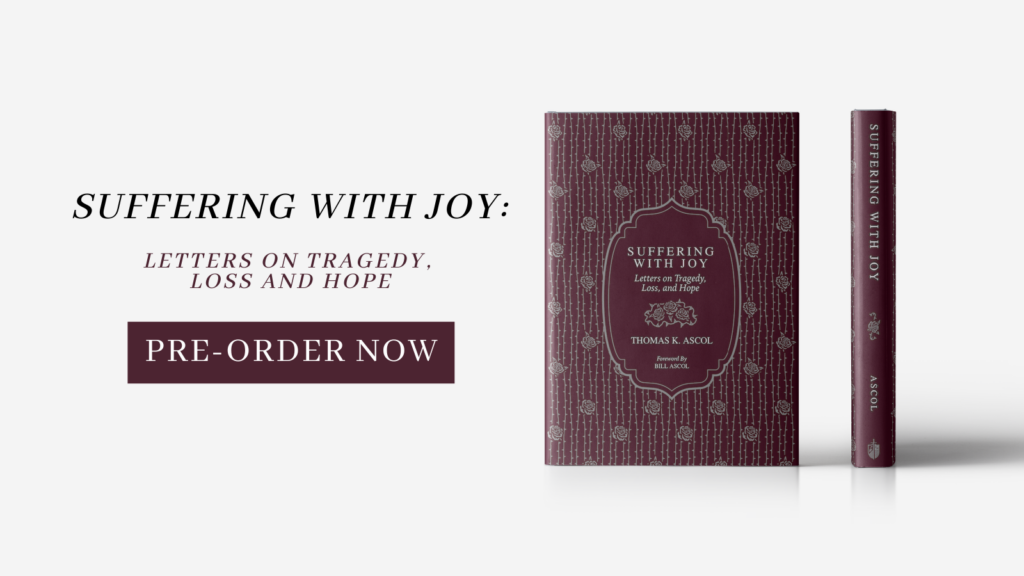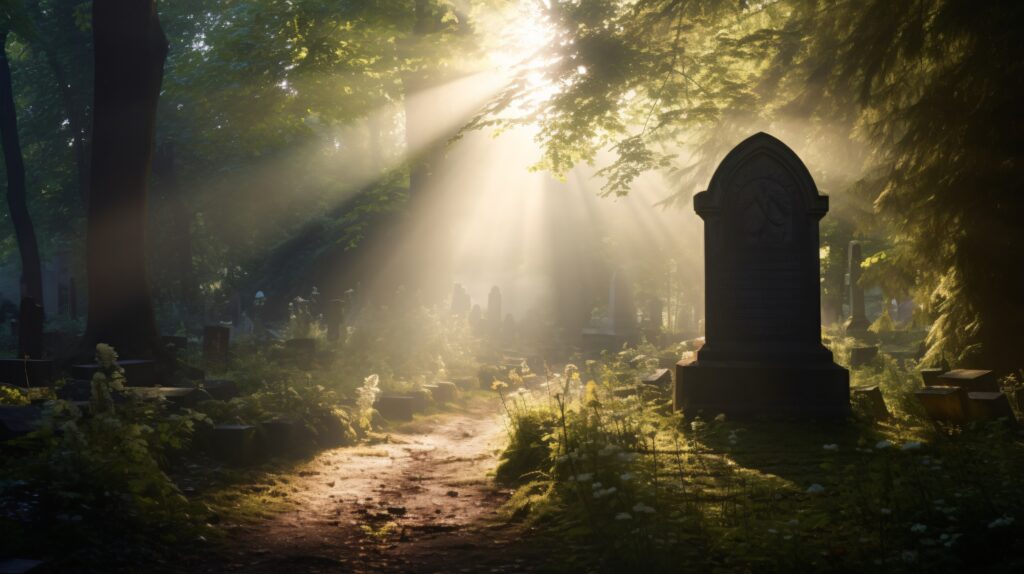In 2000, my sister, Joy Dyer, tried to pay for a purchase at a department store but could not make her hand write out a check. That was the first sign that something sinister was attacking her body. Almost one year later to the day, cancer took Joy’s life. The following article is taken from the upcoming book, Suffering with Joy, which is comprised of letters that were written out of a desire to walk with Joy, her husband, Dean, and their family and friends through this hard journey. My hope is that these letters will provide comfort and encouragement in Christ to other fellow sufferers who are walking a hard path.
Who shall separate us from the love of Christ? Shall tribulation, or distress, or persecution, or famine, or nakedness, or peril, or sword?
Romans 8:35
Joy has had a couple of falls recently and has noticed some diminished capacity on her right side. She is being extra careful as she awaits her next appointment with the doctor. Monday, November 20, she has a MRI in Houston. The next day she will see her doctor. She and Dean continue to trust the Lord and call on Him for help and strength each day. When I spoke with her on the phone yesterday, we talked about how it seems like we are hearing about more and more people who are being diagnosed with cancer. She related to me part of a conversation she and Dean had about this over dinner—how some diseases are terminal while others are treatable. Dean, in his customary way, made a brief comment that put it all in perspective. He said, “Honey, we are all terminal.”
Of course, he is right. No matter where you live, the death rate is a constant one per capita. Some live longer than others, but in the grand scheme of things, even the longest life is, as the Bible describes it: “a vapor that appears for a little time and then vanishes away” (James 4:14). We were not designed to die. But when our first parents rebelled against God, sin came to the whole human race, and “the wages of sin is death” (Rom. 6:23).
We often think of death as natural, and it is to the extent that it is inevitable. But in another very important sense, death is unnatural. Death became a reality for humanity because of sin. “Through one man,” the apostle Paul says, “sin entered the world, and death through sin, and thus death spread to all men, because all sinned” (Rom. 5:12). While this does not mean every individual’s death can be blamed on his particular sin, it does mean that if sin had not come into the world, there would not be any death. So death is an intruder that has entered through the door sin opened.
Death is an intruder that has entered through the door sin opened.
No one escapes death’s impact. The Bible says, “It is appointed for men to die once, but after this the judgment” (Heb. 9:27). This is what Dean was talking about when he said, “We are all terminal.” This bad news is what makes the news of God’s provision for us in Christ so good! By His resurrection from the dead, Jesus has conquered death. Paul writes, “For since by man [Adam] came death, by Man [Christ] also came the resurrection of the dead. For as in Adam all die, even so in Christ all shall be made alive” (1 Cor. 15:21–22). Paul is not saying that everyone without exception will be made alive because of Christ. Rather, all who are “in Christ” will be made alive, that is, will be made to live again eternally—will be resurrected from the dead.
How do you get to be “in Christ”? God must draw you to Christ. Jesus said, “No one can come to Me unless the Father who sent Me draws him; and I will raise him up at the last day” (John 6:44). Paul says the same thing when he explains to the Corinthians how they came to be “in Christ”: it is “of Him [God] you are in Christ Jesus” (1 Cor. 1:30). When God so convinces you of your own sin and separation from Him and your need to be reconciled to Him through Jesus Christ, you will trust Christ with your life; you will be drawn to Him and thus will, by faith, begin a new life “in Him.”
Life in Christ is full of meaning, purpose, and hope. It is life lived in connection with the true God. It is life lived in the love of God. The apostle John wrote, “In this the love of God was manifested toward us, that God has sent His only begotten Son into the world, that we might live through Him” (1 John 4:9). To know the love of God is the greatest thing in the world, which brings us to this week’s Joy Verse. Continuing in Romans 8, Paul writes in verse 35, “Who shall separate us from the love of Christ? Shall tribulation, or distress, or persecution, or famine, or nakedness, or peril, or sword?”
The love and compassion of our Savior for sinners is revealed most clearly in His self-sacrifice on our behalf.
Paul uses rhetorical questions again to make his point. Christians are loved by Jesus Christ. Unlike human love, which can wax and wane or even be broken altogether, Christ’s love for His people is eternal. Paul makes this point by asking, “Who shall separate us from the love of Christ?” The implied answer is, “No one!” Then he mentions seven different kinds of difficult experiences that might tempt a Christian to doubt Christ’s love. First-century believers were liable to all of these trials. But Paul reassures us here that nothing can ever separate us from Christ’s love. Not outward afflictions (“tribulation”), inward turmoil (“distress”), painful opposition (“persecution”), physical deprivation (“famine, or nakedness”), dangers (“peril”), nor death (“sword”). Nothing, absolutely nothing, can separate a believer from his Savior’s love.
When Paul wrote this, he was not speaking as a novice or mere theoretician. He had already experienced six out of the seven difficulties. And he knew by experience, as well as by the teaching of God’s Word, that Christ’s love conquers all. The love and compassion of our Savior for sinners is revealed most clearly in His self-sacrifice on our behalf. The cross of Christ stands as an eternal monument to the love of Jesus for His people. Paul knew this. We can know it, too, by looking to that cross in faith, and trusting in the One who died there and who then rose from the dead.
Because of Christ, and in Christ, our terminal condition is overruled. Death, though it remains our last enemy, is defeated. And life beyond death is assured. This is the believer’s hope and confidence.



























